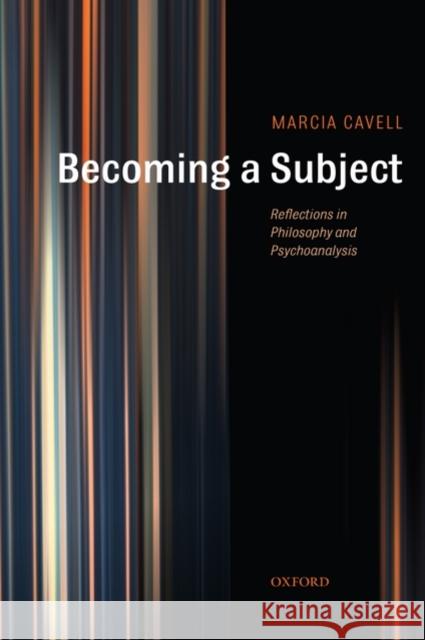Becoming a Subject: Reflections in Philosophy and Psychoanalysis » książka
Becoming a Subject: Reflections in Philosophy and Psychoanalysis
ISBN-13: 9780199287093 / Angielski / Miękka / 2008 / 192 str.
Marcia Cavell draws on philosophy, psychoanalysis, and the sciences of the mind in a fascinating and original investigation of human subjectivity. A "subject" is a creature, we may say, who recognizes herself as an "I," taking in the world from her own subjective perspective; who is an agent, doing things for reasons, sometimes self-reflective, and able to assume responsibility for herself and some of her actions. The idea of a 'subject' points, then, toward an ideal. It asks for the conditions under which a human infant becomes a subject, and for the sorts of things, like self-deception and massive anxiety, that get in the way.
What sorts of questions are these? Certainly philosophical. They burrow into central issues in moral philosophy: freedom of the will, the "self," self-knowledge, the relations between reason and passion, between autonomy and self-knowledge, issues that form roughly the second half of the book. They lead also into metaphysics and epistemology: Is subjectivity incompatible with objectivity? Are subjects not also objects in the real world? As such, how are they to be treated? Would it be possible, in theory, for a creature to become a subject in the absence of relationships with other subjects? But the questions are also practical. In particular they are at the heart of psychoanalysis both as a theory of the mind, and as a therapy which aims at maximizing the ideals of autonomy and self-knowledge implicit in the very idea of a "subject."
One of the guiding premises of Becoming a Subject is that philosophical investigation into the specifically human way of being in the world cannot separate itself from investigations of a more empirical sort. Cavell brings together for the first time reflections in philosophy, findings in neuroscience, studies in infant development, psychoanalytic theory, and clinical vignettes from her own psychoanalytic practice.











